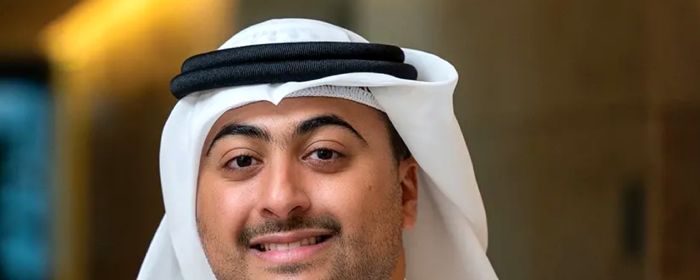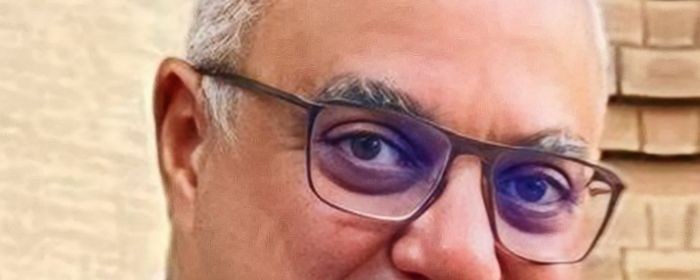While one may credit financial support and adequate infrastructure for Aleid Foods’ success, the key to their triumphs is really identifying the opportunities that are aligned with their ideas and leveraging acquisitions that could speed up the execution.
Chewing on the complexities
As a business owner, the F&B industry is one of the most challenging industries to work in, considering the changing trends, demands and policies keep industry leaders on their toes. So, when we sat with Eng. Mohammad S. Al-Mutairi to discuss his insights on the F&B sector, we knew we were speaking to a legacy figure who has not only managed an organization for two decades but also extended it beyond the borders.
After some niceties, when we dove into a tough question pertaining to the challenges in the industry, Eng. Al-Mutairi did not flinch and provided us with some thorough responses.
He cites the quartet of talent, inflation, supply chain, and technology and innovation as the biggest barrier to Kuwait’s F&B sector. He explains that while Kuwait has a lot of talent that has led to the industry’s success, attracting it has been a challenge post the COVID-19 crisis.
“This was because people could not enter the country after exiting and VISAs were not being issued for more than a year. So, skilled resources had the biggest impact, followed by inflation,” he says. He draws optimism from Kuwait’s future talent pool, i.e., individuals who are currently pursuing their higher education abroad, and believes they will make groundbreaking contributions towards the sector upon their return.
When it comes to Kuwait’s ability to deal with inflationary pressures, Eng. Al-Mutairi is rather optimistic and believes in the country’s ability to bounce back. He adds, “Kuwait has always been resilient.
If you compare the impact of inflation and how some of the countries in the region are making a comeback, you will notice that Kuwait has been adapting faster.
The pandemic was one of the reasons why the shipping rates (cost of supply and availability of containers, etc.) multiplied, and it took us 1.5–2 years to recover from that. More people saw production of containers as a business opportunity as there was a huge demand and a shortage of supply.”
Eng. Al-Mutairi thinks if there was one thing that businesses could single-handedly benefit from, then it would be through the provision of key data. Businesses could leverage this information to identify gaps in their processes and in the overall market and work towards bridging them collectively, rather than working in isolation.
Brewing fresh ideas
Continuing the recovery story of the F&B sector from the COVID-19 pandemic, Eng. Al-Mutairi explains, “There were many reasons behind the recovery, with a primary factor being kitchen bars/cloud kitchens. Today, many of those innovations have taken up more of an F&B solution’s role.”
He further explains that if you want to expand your F&B business, you do not need to spend a lot on buying assets; instead, you can rent. This way, you will have more for your operations and overhead costs, but you may have to rely more on your talent, experience, and faith in the concept you are introducing.
“This minimization of costs gives businesses the chance to survive,” he adds. He thinks that having gone through this change brought about a mindset shift in the consumers, enabling them to create their own solutions rather than relying on someone else for it.
“Now we can have one central kitchen serving seven different brands, with seven different concepts and (or) cuisines. This would have been unimaginable ten years ago,” he explains.
Embracing alternative nourishment
If you are keen on growing your business, your approach must be limber, supported by the introduction of newer, more innovative concepts to the market, feels Eng. Al-Mutairi. He says, “Businesses that are more flexible and offer unique concepts such as organic food and meatless options are the ones that have been growing since the past 2–3 years.”
Despite being an advocate for innovation in the domain, Eng. Al-Mutairi has his reservations towards meatless alternatives. He says, “Yes, big brands are entering this niche, but I think there is time before it materializes into something significant.”
For Kuwait’s eating habits to undergo a paradigm shift and move towards cleaner, healthier ways, there needs to be dedicated and regular consumer education.
He says, “Today, organic and plant-based options are widely available and, hence, the gap is narrower and price relatively cheaper. This is driving their introduction in the market, and they are now part of the Kuwaiti consumption. So, with time, when the availability is there, the consumer is educated, and prices are reasonable, the core competition will emerge and consumer behavior will switch faster, attracting change.”
Cooking up innovative solutions
Looking back at when he became the CEO of Aleid Foods, Eng. Al-Mutairi recalls how he took it upon himself to drive their organizational strategy for business transformation. He says, “We started our strategy for transformation, focused on taking our business online, and introduced new and health-based concepts to the market. This is where we began prioritizing technology more.”
He shares that having a company that had dealt with the digital aspects of a business helped accelerate their online business after the COVID-19 crisis’ onset. “It supported us in taking our business online and introducing our own applications and e-commerce platforms, among other things, that could have contributed to the growth of our online revenue,” he adds.
He explains that the shift in focus from offline to online channels was supported by the need for digitization triggered by the pandemic.
Eng. Al-Mutairi believes taking your business online is as much a part of the future as catering to health-based needs. “This is one of the reasons why we acquired Healthland — an online shop for health- and wellness-related needs. This allowed us to offer more organic and (or) health-based products to the consumers to assist them in improving their lifestyles,” he says.
Although Aleid Foods may have started as a typical FMCG distributor to many segments, it is currently focusing more on B2B markets, adding to its offline retail business, and expanding its network of cloud kitchens and mobile applications, among other things.
He says, “As the CEO, the way I wanted to bring about change was by ensuring we had different sources of revenue and future-proof offerings. This could be through the introduction of cloud kitchens, health-based food, and other similar concepts.”
While one may credit financial support and adequate infrastructure for Aleid Foods’ success, the key to their triumphs is really identifying the opportunities that are aligned with their ideas and leveraging acquisitions that could speed up the execution.
Marinating future strategies
The combined challenge posed by Kuwait’s geographic location and difficulties in finding a prime venue for a business is motivating business owners to look elsewhere in the region. “That’s why we went to Saudi Arabia for our own businesses, i.e., whole-selling and food services. They support manufacturing plants, give you the land, provide you with the facilities, rent you equipment, and even give you access to the nearby warehousing facilities,” he adds.
He recognizes the barriers in building manufacturing plants in Kuwait but does not let them stop him from considering other options to grow. He says, “We are also investing in bakeries and the business of chocolates and confectionaries in addition to cloud kitchens because we think there is a future in it.”
For Eng. Al-Mutairi, opening a new office in Dubai was one of the smartest things to do as it serves as a means to access re-exporting at the best value for food and consumables. His company’s goals for the next three years include the implementation of a thorough regional expansion, including setting up the business model in Riyadh and Saudi Arabia and expanding further into two more cities in the GCC region.
He also acknowledges the importance of capital in a challenging market like Kuwait and expresses his openness to have foreign investors on board. “Since we are a listed company in the Kuwait stock market, we are further developing our business diversifications and sustainable models that are attractive to foreign investors, companies, funds, etc.,” he concludes.
Get in touch
Connect with us
- Find office locations kpmg.findOfficeLocations
- kpmg.emailUs
- Social media @ KPMG kpmg.socialMedia






